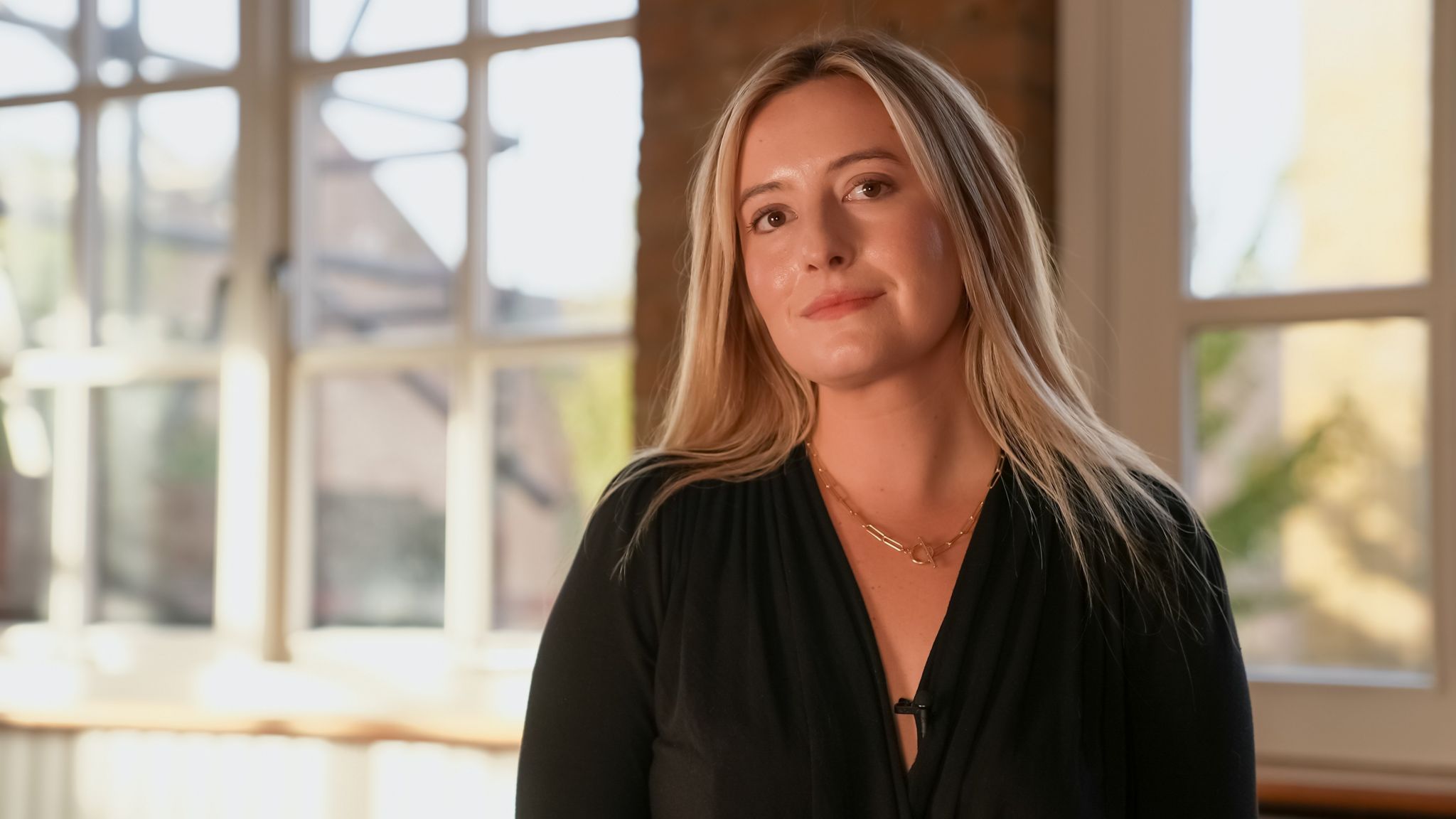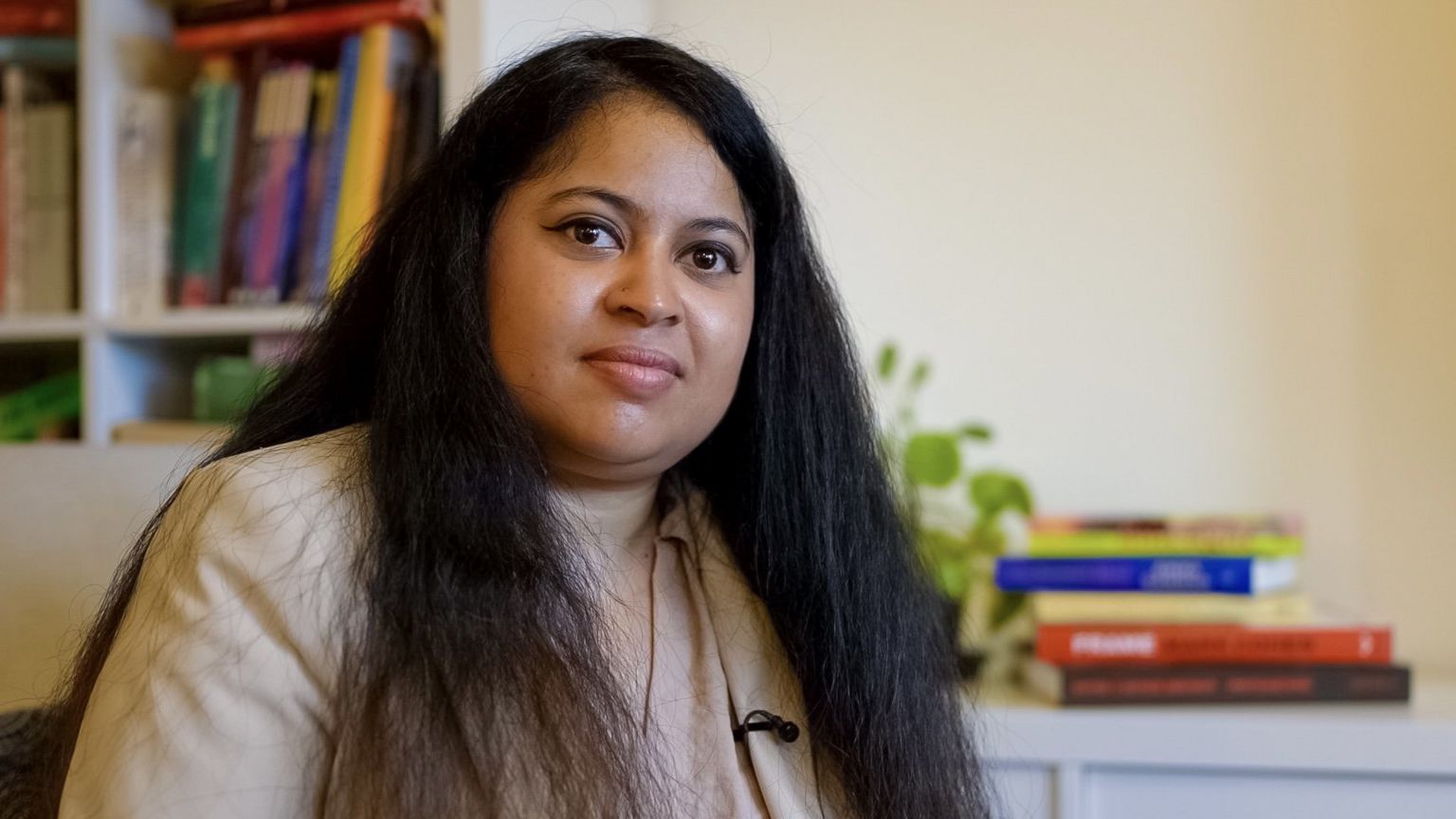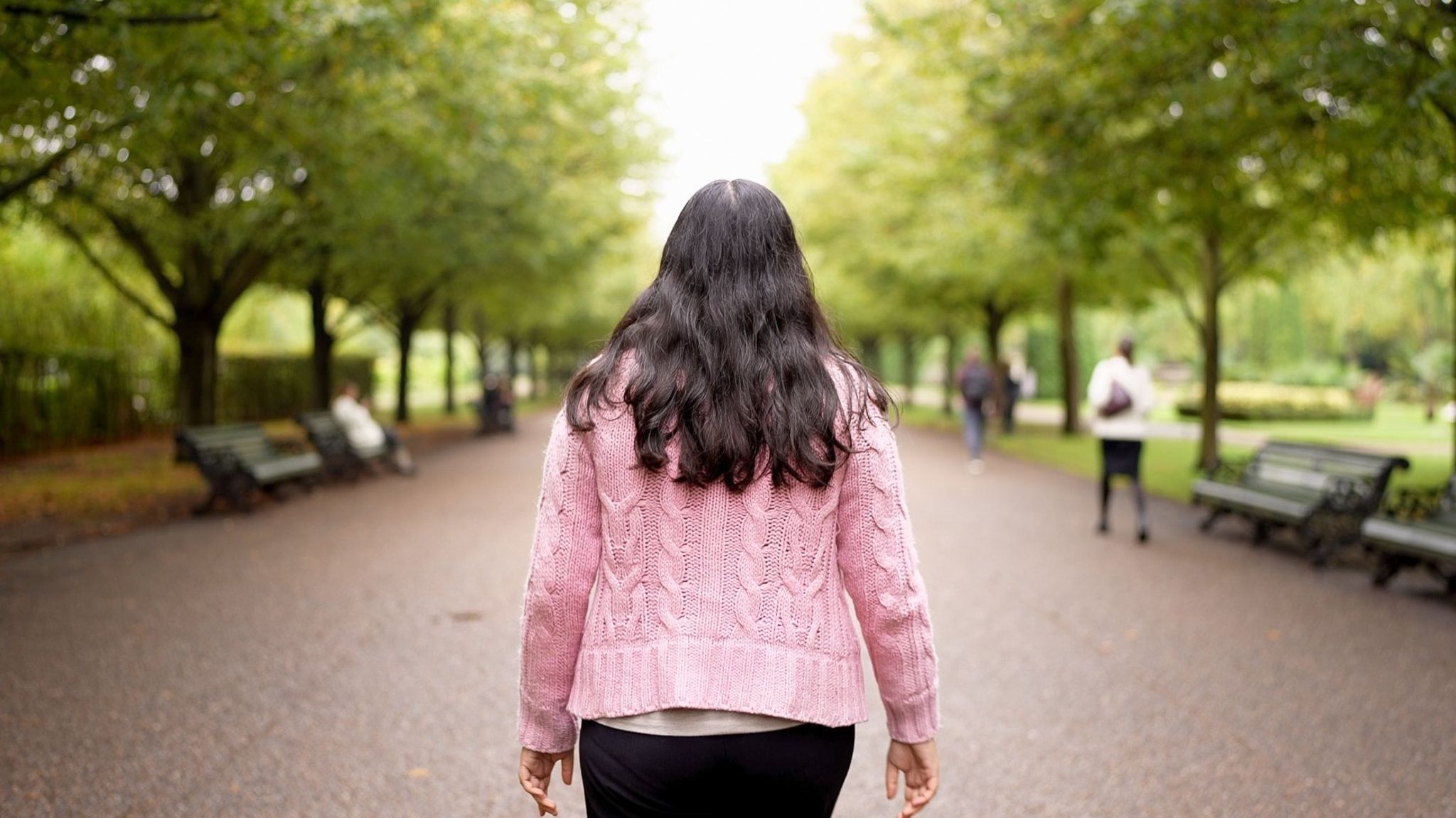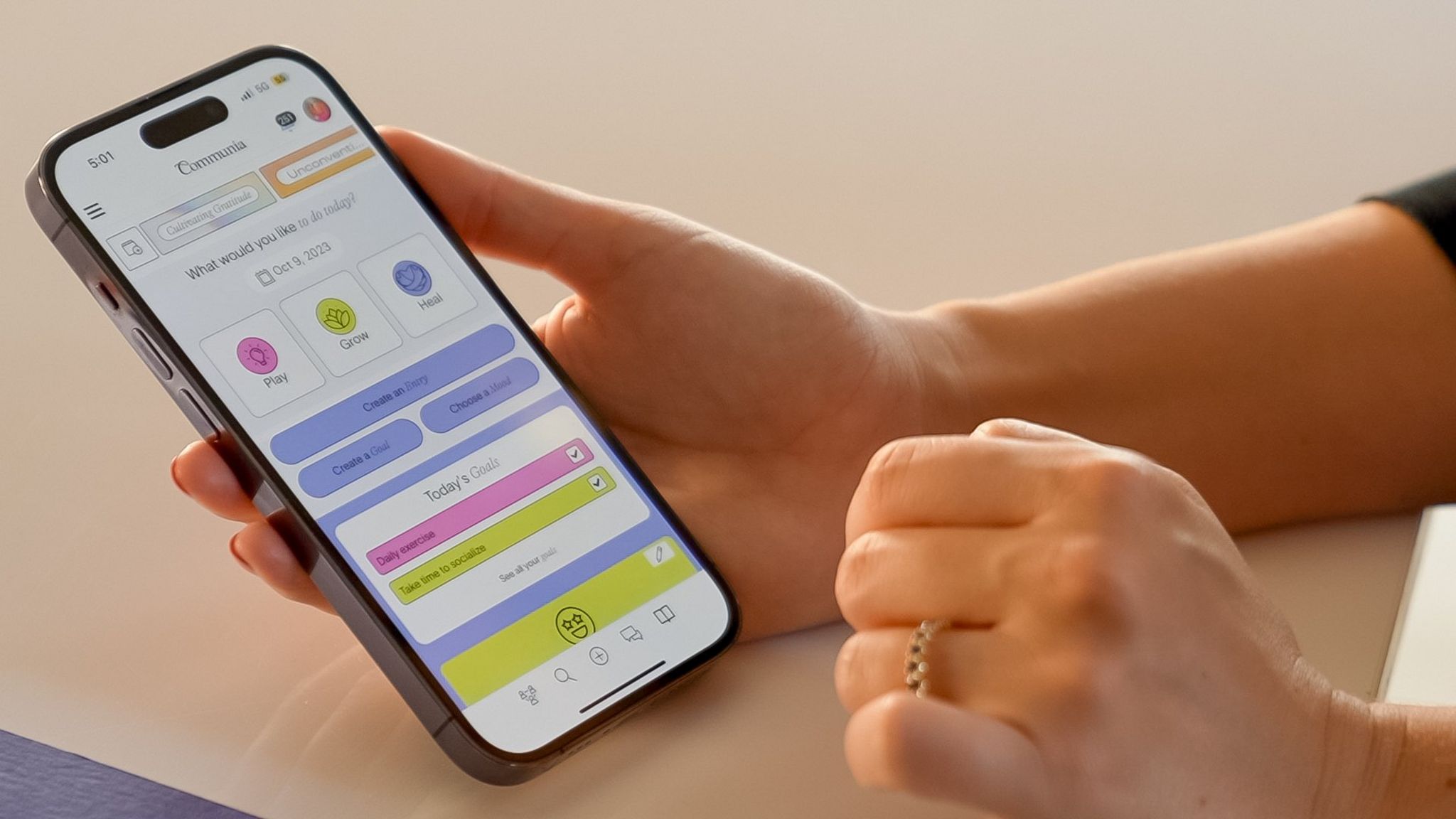‘Sued for millions by my abuser, I set up a social network instead’

Olivia DeRamus was 19 and studying at university in California when she was sexually assaulted. The situation was made worse when she found she couldn’t speak out about it.
“I was sexually assaulted. And my story doesn’t end there,” says Olivia.
After reporting the incident, the university launched an investigation and took action against the alleged perpetrator.
Olivia chose not to go to the police to avoid more trauma. But she still found she was caught up in a legal battle that lasted for years.
“I was actually sued by the perpetrator of my assault, for defamation.”
In the United States if someone sues you, even if you win, you still have to pay your own fees – the financial pressure of this, she believes, was used to try to get her to retract her story as he denied the assault.
And as is often the case, she found that while legal proceedings continued, she was not able to speak about her experience in case her comments were used against her in court.
Olivia felt she desperately needed a safe space to discuss what was happening but couldn’t find one. So as the process came to a close she went about setting up a new social network to give people in challenging circumstances a place where they can be heard.
This video can not be played
To play this video you need to enable JavaScript in your browser.
She founded Communia, which she says is a first-of-its-kind social network addressing “social health”, offering features such as journaling, mood tracking, community support and other resources.
“You can connect with yourself as much as you connect with others,” she says.
The app, aimed at women and non-binary people, also has a more “Twitter-style” feed that can be used anonymously, whether for legal reasons or simply to retain privacy.
Olivia had suffered a physical assault, but victims of online abuse – according to the charity Refuge this includes more than one in three women in the UK – have also welcomed Communia as a safe place to express themselves.
One of those is Suswati Basu, a podcaster and former journalist. Suswati says her online feeds were “flooded” with homophobic, racist and sexist comments after she responded to a post on X, formerly Twitter, about the treatment of asylum seekers.

Suswati says other platforms make her “vulnerable”.
To tackle problems like this, Communia has human moderators. They also verify all members by email and if they want to talk about certain subjects like sex or the #MeToo movement, users have to be verified using photo identification – a much more hands-on strategy than at other social media platforms.
“When I told people in the industry, they thought I was out of my mind,” says Olivia. But she insists it can be done, even at scale.
And for Communia users, these safety features are a big part of the draw.
Lucy, not her real name, was trying to recover from an eating disorder. She befriended someone she thought was another girl suffering with anorexia on the social media site, Tumblr.
But then her “friend” started asking for photographs and sending messages that made her feel more and more uncomfortable.
It turned out she had been conversing with a man, who proceeded to send “several half-nude photographs”.

“I felt really violated by it,” says Lucy. “It just didn’t feel safe.”
Tumblr declined to comment.
Her experience on other platforms wasn’t much better. “No matter where you go, if you admit you’re a woman, it’s like the environment just becomes sexualised automatically,” she says. So she welcomes the “positive space” that Communia offers for women.
Men are allowed on the app, but they are not encouraged. Olivia says that when men do use the platform “nine times out of 10 it’s for the wrong reasons” and they are removed.
Another way Communia stands apart from other platforms is that it doesn’t rely on advertising. It has been downloaded more than 100,000 times, with the majority of users in the UK and the US.
Currently the basic app is free, with the option to pay for additional features and Olivia hopes to scale the business and make it profitable without advertising.
“You can add value, add additional revenue streams, in a responsible way that actually supports people and gives them what they need, versus extracting their privacy and their data,” she argues.

Brooke Erin Duffy, an associate professor in communication at Cornell University, says that may prove a challenge.
“While the platform’s efforts to evade data-collection and ad-targeting measures are laudable, they may prove difficult to sustain. Without advertising support, the platform will have to maintain a loyal base of paid subscribers,” she says.
A key challenge will be how to scale up without “losing the sense of community that drew users in the first place” she predicts.
And for Olivia, the community means everything, given the experience she has been through.
For lots of people battling a court case isn’t an option financially, so Olivia says the fact she was able to and can now talk about her experience is a privilege.
“If I can support other women in whatever it is that they’re going through, then that’s enough justice for me.”
If you have been affected by the topics discussed in this article you can seek help and support by visiting the BBC’s Action Line.

